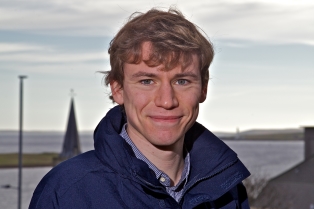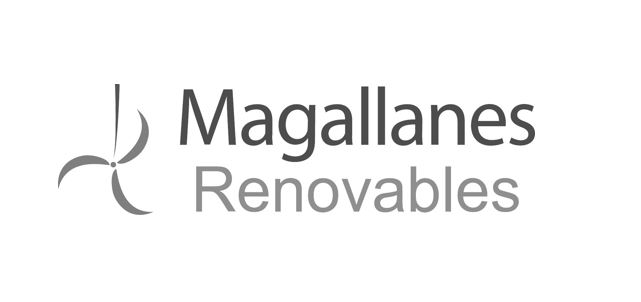EngD case study – James Ferguson
Name: James Ferguson
Start year: 2017
Final year: 2021
Thesis: link
EngD overview
EngD
Technoeconomic modelling of renewable hydrogen supply chains on islands with constrained grids.
Funded / supported by
- Energy Technologies Institute
- Research Councils UK Energy Programme through the Industrial Doctoral Centre for Offshore Renewable Energy (IDCORE) which then comprised of the University of Edinburgh, the University of Strathclyde, The University of Exeter, The Scottish Association for Marine Science, and HR Wallingford.
Summary of EngD
I developed technical models of electrolysers (machines which use electricity to split water into hydrogen and oxygen) and incorporated these into wider technoeconomic models, which looked at production rates, unit costs and optimal sizing.
Outcomes / findings
I validated a technical model of a 600 kW electrolyser and hydrogen storage/dispensing system and found how much hydrogen it could produce and at what cost. I also envisaged a scenario where Orkney’s internal ferry service switches to using hydrogen and found the optimal size of wind/tidal farm, electrolyser and hydrogen store that minimised costs while always satisfying demand.
Why?
Why is this research of interest to you?
I was inspired to explore hydrogen technologies by energy commentator Chris Goodall. Chris’ 2016 book ‘The Switch’ argued that solar would rapidly fall in cost (which, in 2022, we can confirm has happened) such that renewables coupled with energy storage becomes an attractive route for decarbonising energy. Hydrogen was highlighted as one such means of energy storage.
Why did you choose to go down this route?
During my studies at university I realised I had an interest for how we can provide energy for everyone while making space for the other things that live beside us on this planet. However, while I knew the direction I wanted to go in, it was rather events that led me to joining IDCORE and EMEC’s hydrogen project specifically!
Why is the research important?
I am interested in research because it helps us to identify how to reach our goals, which are usually based on our values. In this case, we value energy because, in broad terms, it helps to raise living standards, and we also value a stable climate because, basically, it makes it easier to live on planet Earth. Thus, to preserve our access to energy and a stable climate, the UK and others have set targets for net zero. Research will help us to achieve this goal.
As a test centre, research is at the core of EMEC’s contribution to a globally successful marine energy industry as part of a clean energy system.
For wider industry, whose goals are to make a profit, research helps to maintain competitiveness. Research is also important for governments, as, in general terms, it indicates which way to steer market conditions such that industry is able to provide useful services and generate tax revenue while maintaining a healthy environment.
In global terms, as humans become increasingly powerful, research is an important tool for aligning ourselves with a pathway that leads to a bright future for the coming generations.
What challenges is it aiming to overcome?
In my field, the challenge is to rework the energy system from one mode of operation to something completely new. Amongst other things, this involves accelerating technologies which are expected to play an important role in the new system, including water electrolysis and hydrogen.
Where now?
Where are you working now?
After completing my doctorate, I worked at EMEC for a year before starting a new job as a research engineer in hydrogen systems for the Offshore Renewable Energy Catapult.
What does the future look like for you?
I expect to keep working as a research engineer, but we will see what the future holds!
Testimonial
“I was very pleased to set out on a project that was dealing with technology I had read would be important to the energy transition. While the doctoral project was very, very difficult, and there were times when I would have rather been doing something else, it has equipped me with the skills to contribute to reaching a UK and global net zero. So thanks to EMEC for having me!”
Thesis
- Technoeconomic modelling of renewable hydrogen supply chains on islands with constrained grids (Edinburgh Research Archive, July 2021).





